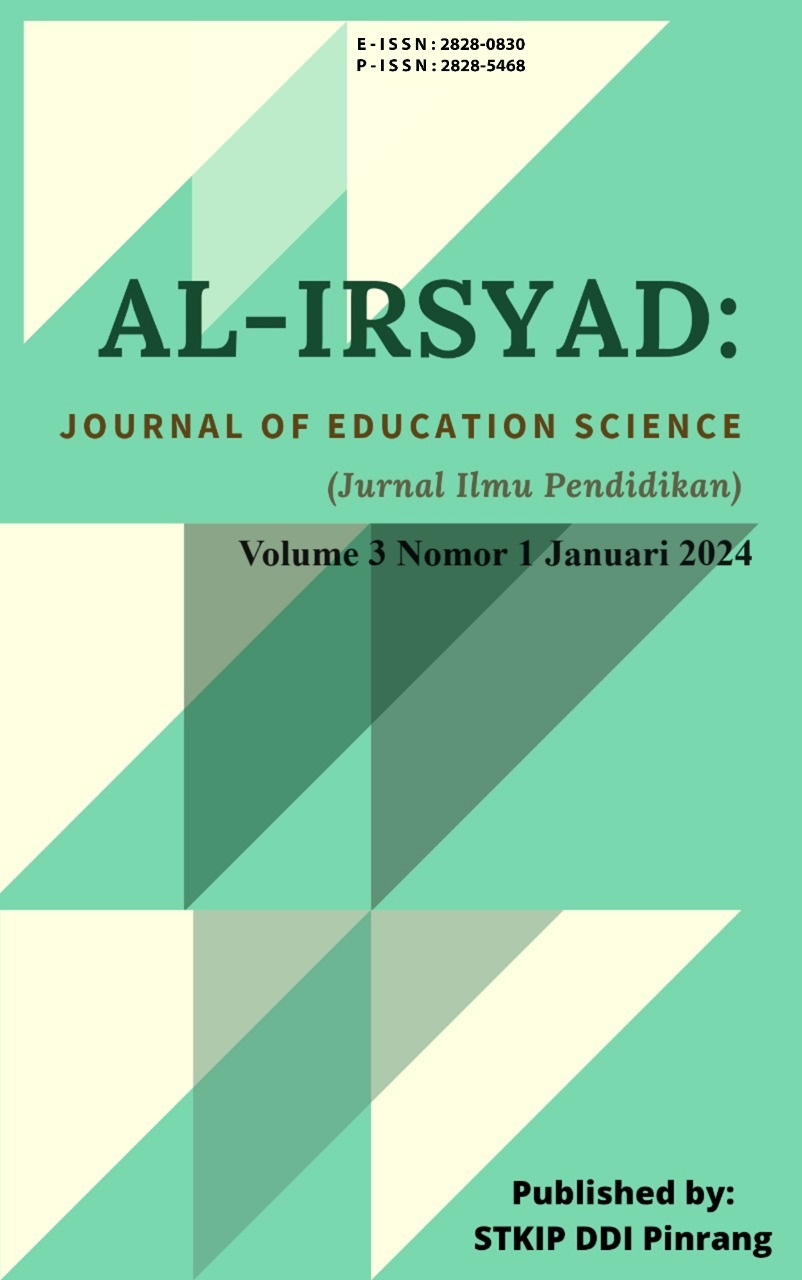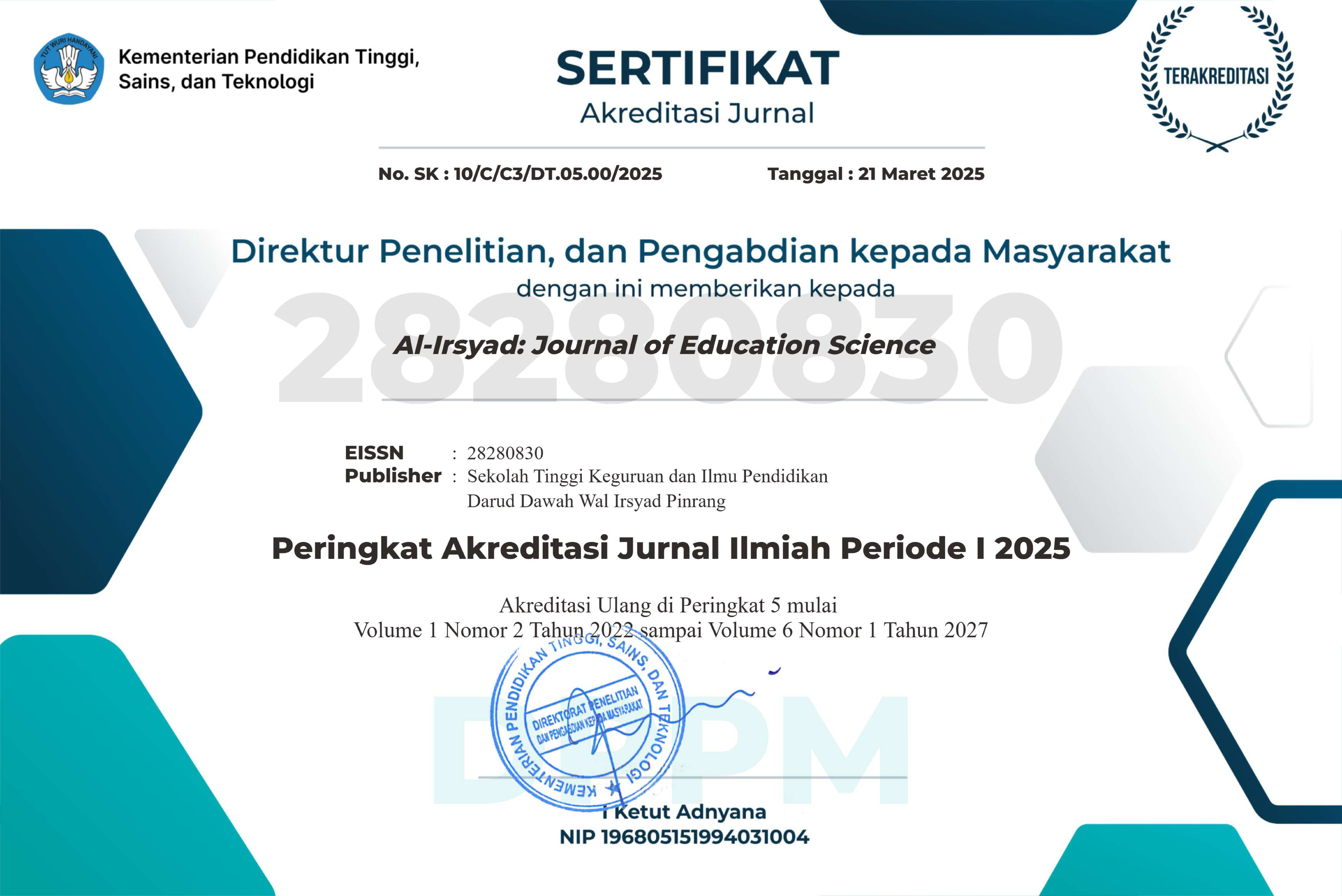SEMANTRIS GOOGLE AI-BASED LEARNING TO ENHANCE STUDENTS’ VOCABULARY MASTERY
DOI:
https://doi.org/10.58917/aijes.v3i1.94Kata Kunci:
Aritificial Intelligence, Semantris Google AI, Vocabulary EnhancementAbstrak
Semantris Google AI-Based Learning research has examined the students' disinterest and low level of vocabulary acquisition in English subject at MTs DDI Takkalasi. The students cited difficulty in pronunciation and other reasons for their lack of enthusiasm towards English as a difficult subject. This lack of interest and motivation is due to the absence of an interesting and enjoyable learning environment, which hinders students' ability to concentrate on their studies. In addition, the limited application of modern technology in the learning process makes this a problem that must be addressed given the increasingly advanced era. The research employed a quasi-experimental design to investigate the effectiveness of an intervention in improving students' English language proficiency. The study utilized a quantitative approach, conducting pre-test and post-test analyses to measure the impact of the intervention. The pre-test served as a baseline measurement, while the post-test assessed the outcomes after implementing the intervention. The researcher employed a quota sampling technique to select participants. The results of the Semantris Google AI-Based Learning study showed a significant difference in vocabulary improvement between the two groups, as evidenced by the T-count value of 6.858, exceeding the critical T-table value of 2.060. The rejection of the null hypothesis (H0) is supported by the mean N gain value of 0.4249 obtained from the experimental class, which falls within the moderate range according to the N gain table. This finding confirms that the use of Semantris Google AI-Based Learning is very effective in improving the vocabulary mastery of MTs DDI Takkalasi students.
Referensi
Adams, C., Pente, P., Lemermeyer, G., Turville, J., & Rockwell, G. (2022). Artificial Intelligence and Teachers’ New Ethical Obligations. The International Review of Information Ethics, 31(1), 1–18. https://doi.org/10.29173/irie483
Arikanto, S. (2011). Dasar Evaluasi Pendidikan. Jakarta: Bumi Aksara, Edition of, p.245.
Dewi, H. K., Rahim, N. A., Putri, R. E., Wardani, T. I., Rumambo, M. G., Airlangga, U., Glorino, M., Pandin, R., & Airlangga, U. (n.d.). Artikel Ilmiah Filsafat final. Ml.
Humaera, I., Sardi, A., Akbal, F. A., Amir, A. S., Hasyim, R., & Noni, N. (2023). EFL Students' Entrepreneurial Tendencies: Is It a Misdirected Issue?. EduLine: Journal of Education and Learning Innovation, 3(3), 444-453.
Jensen, S. H. (2017). Gaming as an English language learning resource among young children in Denmark. CALICO Journal, 34(1), 1–19. https://doi.org/10.1558/cj.29519
KataData. (2020). EF: Kemampuan Berbahasa Inggris Masyarakat Indonesia Berkategori Rendah. KataData, 2020. https://databoks.katadata.co.id/datapublish/2020/12/14/ef-kemampuan-berbahasa-inggris-masyarakat-indonesia-berkategori-rendah
Kuncoro, A. (2017). Korelasi Penguasaan Kosakata dengan Keterampilan Berbicara Siswa dalam Bahasa Inggris. SAP (Susunan Artikel Pendidikan), 1(3), 302–311. https://doi.org/10.30998/sap.v1i3.1547
Kuvvetli, M. (2023). The Influence of Pronunciation Education via Artificial Intelligence Technology on Vocabulary Acquisition in Learning English The Influence of Pronunciation Education via Artificial Intelligence Technology on Vocabulary Acquisition in Learning English. April. https://doi.org/10.52380/ijpes.2023.10.2.1044
Li, J., & He, J. (2022). Research on AI-Assisted Teaching Mode for English Teaching from the Embodied Cognitive Perspective. Lecture Notes in Electrical Engineering, 935 LNEE, 294–299. https://doi.org/10.1007/978-981-19-4132-0_35
Mujahidah, M., Megawati, M., Khaira, M., Rendra W, R., Safirah, S., & Wildayanti, W. (2020). Basic English for Young Learners.
Sardi, A. (2023). A HANDBOOK YOUR BASIC GRAMMAR For Beginner (Non-Sardi, A., Kalsum, K., Rauf, W., & Hasyim, S. (2023). Enhancing Students’ Writing Skills through the Implementation of the Seven Nucleus Approach in Teaching Tenses. SELTICS, 6(1), 39-47.Native Speakers).
Sardi, A., Haryanto, A., & Weda, S. (2017). The Distinct types of diction used by the efl teachers in the classroom interaction. International Journal Of Science and Research (IJSR), 6(3), 1061-1066.
Sasan, J. M., & Rabillas, A. R. (2022). Enhancing English proficiency for Filipinos through a multimedia approach based on constructivist learning theory : a review. 3(8), 45–58.
Unduhan
Diterbitkan
Cara Mengutip
Terbitan
Bagian
Lisensi
Hak Cipta (c) 2023 Fathur Rahman Arif Hasan, Adi Isma, Ambo Dalle, Yulie Asni

Artikel ini berlisensi Creative Commons Attribution 4.0 International License.























